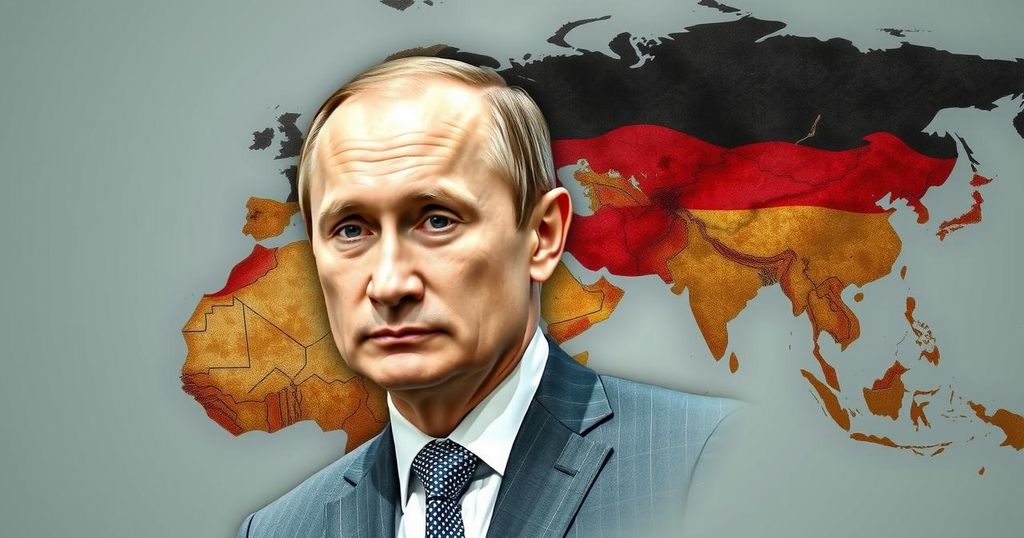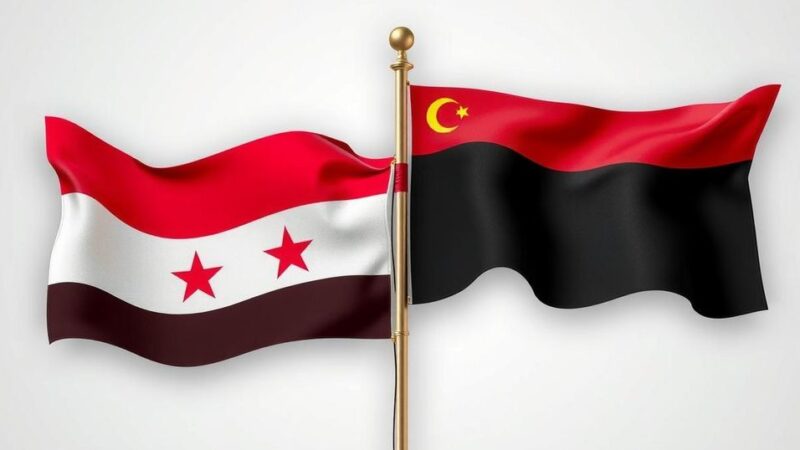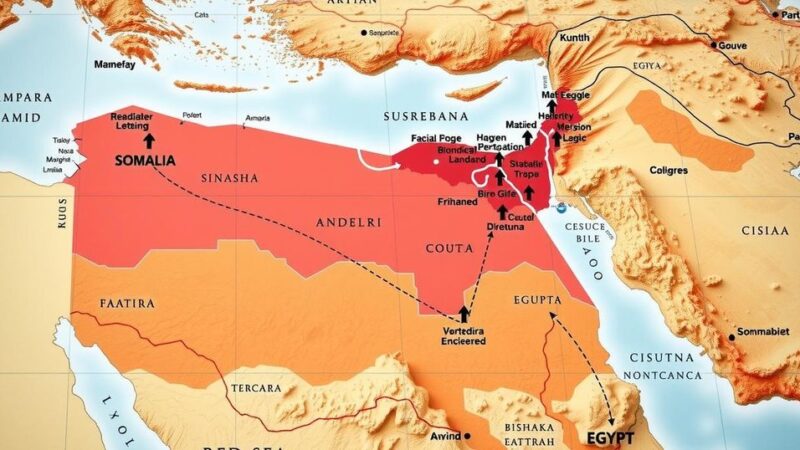Vladimir Putin faces setbacks in Africa as Sudan and Libya resist Russian military presence following the downfall of Bashar al-Assad in Syria. Sudan has rejected a proposal for a Russian naval base, and Libya’s Prime Minister has opposed military expansion. This development complicates Russia’s influence in the region, which has already been strained by its focus on the Ukraine conflict.
Vladimir Putin has faced significant resistance in Africa, particularly following the recent collapse of Bashar al-Assad’s regime in Syria, a scenario that jeopardizes Russia’s influence on the continent. Sudanse authorities have officially denied a Russian proposal to establish a naval base on their Red Sea coast, citing concerns over potential backlash from Western nations. In addition, Libyan Prime Minister Abdul Hamid Dbeibeh has expressed opposition to any increase in Russian military presence in Libya, insisting that foreign forces must enter with official agreements or face rejection. This opposition from two of Russia’s key African allies is particularly troublesome as it complicates Moscow’s efforts to maintain strategic military advantages and alliances amidst changes in regional power dynamics.
Russia’s prior aspirations for a naval base in Sudan have long been hindered by the internal conflicts prevailing in the country, alongside the civil war that has erupted since 2019. The Kremlin’s support for rival factions within Sudan, namely the Rapid Support Forces and the Sudan Armed Forces, underscores its intention to carve out influence within the region. Reports indicate that in light of Assad’s downfall, Russia is contemplating transferring military resources from its bases in Syria to bolster its operations in Libya, further threatening stability in North Africa. While Russian officials maintain that they are strategizing to engage with Syria’s new leadership, skepticism remains over whether these endeavors will succeed in maintaining their military foothold.
The current geopolitical landscape illustrates a precarious position for Russia, as it grapples with increasing resistance from nations that were once perceived as allies. Sudan and Libya’s pushback against Russian military expansion signifies a pivotal moment for Moscow’s regional ambitions, compelling it to reassess its strategies amidst growing international scrutiny and domestic challenges stemming from its involvement in the Ukraine conflict.
The current tensions surrounding Russia’s military ambitions in Africa arise in the context of its recent withdrawal of support for Bashar al-Assad in Syria. This shift poses a significant challenge to Russia’s interests, particularly its naval base at Tartus, which has been a strategic sphere in the Mediterranean. Amidst this backdrop, countries like Sudan and Libya, previously aligned with Moscow, are exhibiting resistance to further military involvements and influence from Russia, compelled by the need to avoid Western repercussions and to preserve national sovereignty.
In light of the rejections from both Sudan and Libya regarding Russian military expansion, it is evident that Russia’s foothold in Africa is increasingly in jeopardy. As Putin’s administration navigates the evolving geopolitical landscape following the Assad regime’s collapse, it must confront significant pushback from its erstwhile allies. This situation reflects broader challenges for Russia, particularly as it attempts to maintain its reputation and leverage within regional politics while simultaneously addressing ongoing crises, such as the conflict in Ukraine.
Original Source: www.newsweek.com







